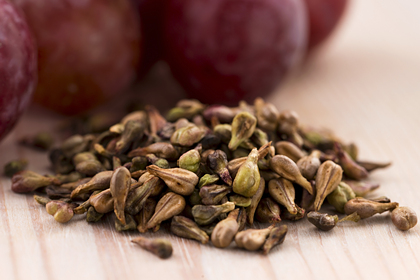
An international team of scientists from the United States and China has discovered that injections of procyanidin C1 (PCC1), found in grape seed extract, prolong the life of old animals. This is reported in an article published in the journal Nature Metabolism.
Researchers tested 46 plant extracts for anti-aging properties. Initial tests during screening showed that PCC1 reduced the number of senescent cells in the human prostate. Senescent cells are old cells that secrete substances that disrupt the functions of nearby cells. At low doses, procyanidin C1 helped to suppress inflammatory processes, and at high doses, it killed aging cells.
The scientists then injected PCC1 into 171 mice, 91 of which were quite old. In the end, they found that the substance increased the total lifespan of mice by 9 percent, and their remaining lifespan by an average of 60 percent. The researchers also administered the extract to younger mice for four months and found that it improved their fitness.
The researchers also injected this chemical into mice that had cancerous tumors. It turned out that this helped to shrink the neoplasms when combined with chemotherapy. Scientists have also found that the same thing happens with human tumor cells implanted in mice. At the same time, healthy cells did not have any damage.

